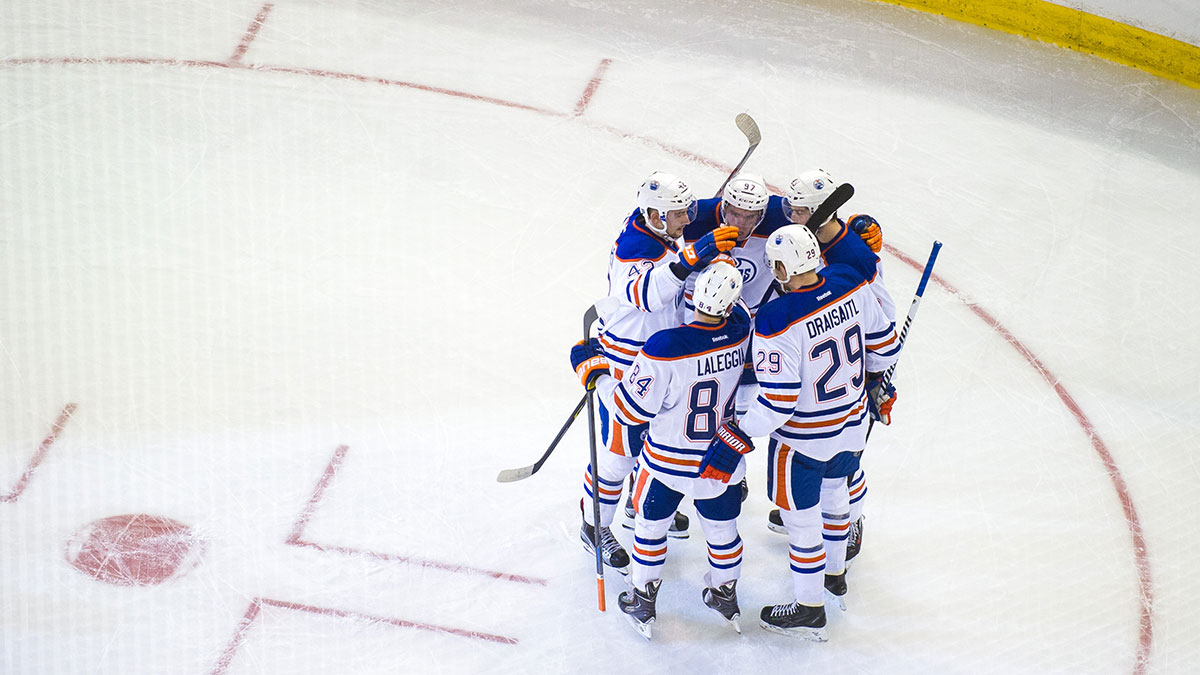 Randy Savoie
Randy SavoieUniversity of Alberta experts have studied the effects of the Battle of Alberta, the hockey playoff series between the Edmonton Oilers and the Calgary Flames. These experts have studied the perceived conflict between the two cities, the psyche of Edmontonians, and the economic benefits of the playoff series.
Christine Kershaw, a PhD student in the group processes and leadership lab, studied the relationship between Edmontonians and Calgarians. Kershaw said that Edmonton and Calgary have a long history of disliking each other and that the perception of status is a “stumbling block” for intergroup relations.
“Typically, status is associated with prestige … [and] I think in terms of Edmonton and Calgary, it’s hard to determine who has higher status.”
Kershaw explained that it is hard to determine and weigh measures to determine which city has higher status — while one city may have better transit, another may have better education. The difficulty to determine who has the higher status increases the conflict between the two cities.
“It increases conflict between the two cities over things like [sports] and I think that the Battle of Alberta via [hockey], really speaks to the conflict between the groups.”
However, this phenomenon isn’t exclusive to the Battle of Alberta. When it comes to sports, some groups are likely to “put down” other groups to make their team look good.
Despite this, there are positives of the Battle of Alberta, such as giving people the opportunity to reconnect with their community.
“[One positive is] getting to almost re-experience that sense of togetherness and belonging that I think we have really missed out on the past few years,” she said. “I think that although the Battle of Alberta might strain tensions between the cities I think it’s incredibly important within each city to reconnect people who might not have had the chance to see each other.”
Dan Mason, a professor of sport management, explained the economic effects and intangible benefits of the Battle of Alberta. Mason said that events such as the Battle of Alberta relocate economic activity from one part of the city to another.
“[There is a] burst of economic activity in one particular area,” Mason said. “There’s sports bars and those kinds of things around the arena, [so] we’ll see lots and lots of sales. You’ll also see an incremental decrease in economic activity throughout the rest of the city.”
Mason added that the Battle of Alberta increased the psychic income for Edmontonians. He defined psychic income as “the sort of social relationships that are enriched by virtue of having something in your city.” The Battle of Alberta attracts new fans, and this gives people something to share in common with each other.
“There may be people that weren’t normally Oilers fans that have kind of jumped on the bandwagon in an office,” Mason explained. “Now they’re at the water cooler and they’re talking to their colleagues about it. It gives them something to share in common.”
Dr. Patrick Joseph White, a clinical professor, elaborated on the gatherings and “communal celebration” the Battle of Alberta has produced.
“The more immediate benefit is what we’ve been through for the last two years — we’ve been through a pandemic,” he said. “We are social beings, we like being with people, we like talking to people, we like interaction, and suddenly, [with the Battle of Alberta] we’re thrust into a wonderful celebration of collegiality, communal celebration, [and] communal strife.”
“I think that can have a huge benefit for our mood, our self-esteem, our collegiality, and communication.”
Dr. White added that the downtown Edmonton area has benefited from the Battle of Alberta.
“It has brought life to downtown — I know it’s temporary, [but] downtown has suffered … [so] to have an injection of people downtown is also a good thing.”




